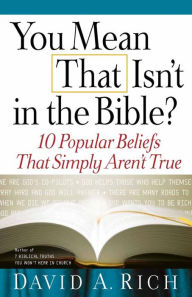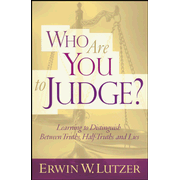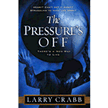Discernment has been defined by some as "the ability to decide (right or wrong, true or false) concerning a testament or statement." Some have mistakenly thought that discernment is a Spiritual Gift bestowed only on chosen individuals. However, the only place discernment is mentioned in the Bible associated with Spiritual Gifts is 1 Corinthians 12:10. Here it is the "ability to distinguish between spirits (NIV)." Websters dictionary defines discernment as "showing good, or outstanding judgement and understanding."
To me, discernment is far more than an ability. Discernment must be a willingness to look deeply into a subject and make a sound judgement. The question then is, "Do Christians care enough to be willing to become good at discernment?" We see that people can be very enthusiastic about a variety of topics. Fantasy football is a good example. Participants will eagerly study and learn statistics about teams and players to create the best pseudo-football team. From my view, concerning churchgoers, I'm not seeing that kind of enthusiasm for sound doctrine these days.
Paul gives young Timothy an important directive: 2Timothy 4:5 "But you, keep your head in all situations, endure hardship, do the work of an evangelist, discharge all the duties of your ministry." Are you teaching your kids to be able to discern truth from error, to be good judges, or have you rushed with the lemmings to embrace Rob Bell's heretical teachings. Are you of more noble character, willing to "examine the scriptures" to see (Acts 17:11) if what he's saying is true?
 You Mean That Isn't In The Bible?
You Mean That Isn't In The Bible?Believe it or not, the saying "God helps those who help themselves" is not found in the Bible. This and several other popular beliefs that emerged out of Christian culture are examined by David Rich. Looking to the Bible, Rich explores the Scriptural basis for where these ideas began, and leads you to the true source of God's wisdom for your life.
Just as dangerous a course is to try and shield or protect our young ones from the tough questions. They will be confronted by false teachings all of their lives. "Keep your head." Work hard to reach your kids with doctrinal truths and build their faiths to withstand the tricks of the enemy. Middle school age kids are quite ready to tackle the tough stuff of faith.
Parents expect us to cover topics like sex and drugs with their kids. "Enduring hardship" might, however, include a tongue lashing from a parent for discussing death, hell, circumcision, meditation, and other religions with their kids. Teaching your kids to question what they hear can appear as though you are advocating rebellion against their parents and other authority figures. Teach my lesson, "Judging v.s. Judgmental."
 | Who Are You to Judge? Learning to Distinguish Between Truths, Half-Truths and Lies By Erwin W. Lutzer / Moody Publishers Making wise judgments in an anything-goes world is the Christian's mandate---and it's not easy! Lutzer chastises the church for its tolerance of secular values and lifestyles and challenges believers with their responsibility to be a force for what's right. Learn how to make godly decisions concerning doctrine, entertainment, miracles, conduct, character, and more. |
To help you teach your kids this essential faith element I have added a page to Teen Bible Lessons website with three free teen Bible lessons covering Discernment, Spotting Counterfeits, and Judging.



No comments:
Post a Comment